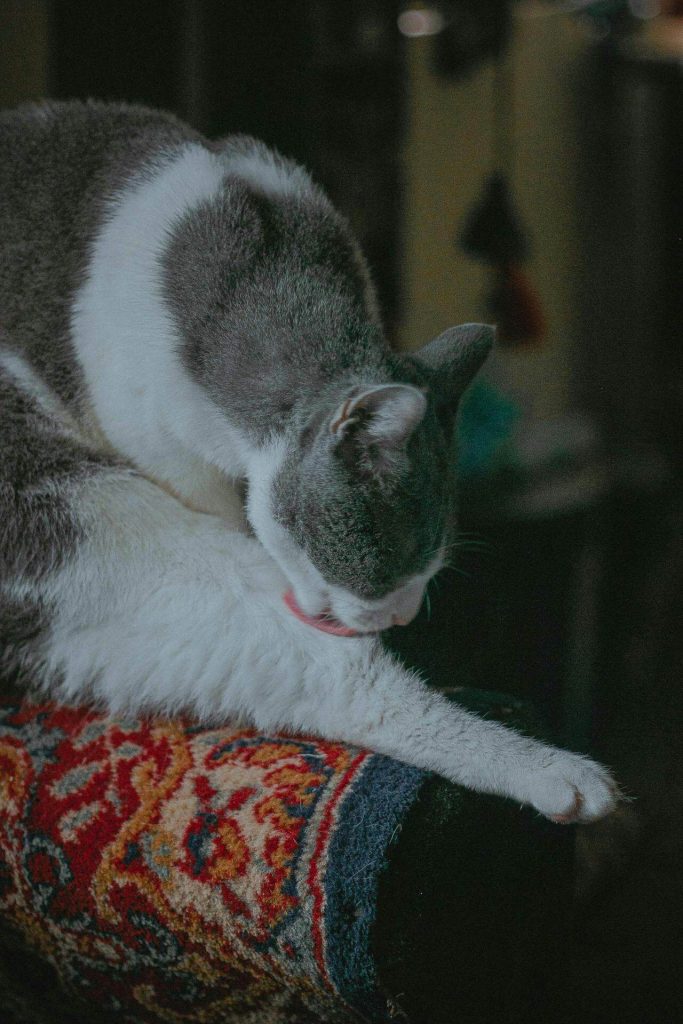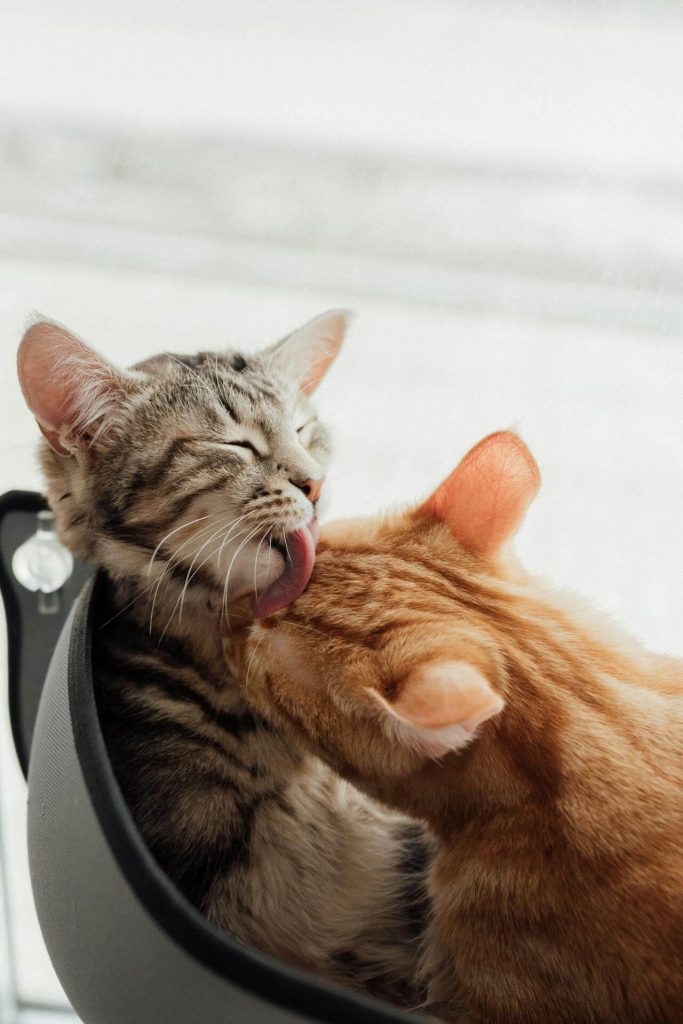Cats are known to be conscientious self-cleaners, but occasionally, grooming goes too far. If your feline friend is suddenly fixated on licking themselves, it’s likely because of a change in their mental or physical health.
As mysterious as cats can be, it’s important to uncover the reason behind excessive grooming before it leads to bald patches and sores. Explore the common physical and behavioral causes of overgrooming to get your pet the relief they need.
Anyone who has ever been licked by a cat knows that their tongues are designed for cleaning. That familiar sandpaper feeling is actually caused by papillae, or tiny, hollow, inward-facing spikes.
Cats’ rough tongues function as a kind of multitool that helps them break down tough proteins and lap up water with more efficiency. Their most obvious use, however, is the perfect hairbrush.
 Physical Reasons for Grooming
Physical Reasons for GroomingLike their big cat ancestors, domestic felines tend to be solitary creatures once they reach adulthood. Self-grooming is an adaptation that allows cats to clean themselves without relying on the help of other pack members.
Healthy cats groom themselves to distribute their skin oils throughout their coats and remove pests, burrs, and mats. It’s also possible that their hunting instincts compel them to try to remove their scent to make it easier to surprise prey.
Though adult cats are notoriously independent, for kittens, grooming is a crucial bonding activity. Shared grooming experiences release endorphins, the “happy hormones” that foster closeness between kittens and their mothers and siblings.
After they’re grown, cats continue to experience this flood of endorphins during self-grooming. Just like we may reach for a favorite childhood treat at the end of a bad day, cats will sometimes use grooming to self-soothe during periods of stress.
Excessive grooming is often a sign that your cat is coping with a difficult change or concealing pain.
If overgrooming doesn’t stop soon after a stressful event (like vacuuming the floors) ends, or if licking is starting to cause hair loss or skin irritation, contact your veterinarian.
To effectively treat overgrooming, you have to correctly identify the underlying cause. Here are a few of the more common explanations for your cat’s oral fixation.
While it’s certainly true that cats lick their wounds, they may also use grooming as a way of coping with internal discomfort.
Because cats tend to be stoic, painful conditions like joint problems, kidney disease, and UTIs can sometimes only be identified through subtle behavioral changes. It’s important to rule out serious health conditions before attributing overgrooming to seasonal allergies or stress.

Atopic dermatitis is a generic term for irritated, inflamed skin. If red, itchy skin is to blame for overgrooming, it’s possible that your pet is having an allergic reaction to:
Depending on the cause of your cat’s allergies, flea prevention, dietary changes, or veterinary-prescribed antihistamines may resolve incessant licking.
As excited as you may be about your new furniture, roommate, or job schedule, don’t be surprised if your cat isn’t a fan of the change.
Our feline friends thrive on routine, so upsets that feel minor to us can cause them a great deal of stress. Make sure that you are adding plenty of play and personal attention into your cat’s day, and give them a safe space they can easily escape to if they feel overwhelmed.
If emotional overgrooming doesn’t resolve within a few days, make an appointment with your vet to explore other options for managing your cat’s anxiety.
Regardless of your reason for doing so, many cats consider disturbing their litter box to be an offense of the highest order.
If you’ve had to make changes to your cat’s litter box due to a move or a change in your household, you may need to be prepared to negotiate. Offering multiple boxes in different locations throughout your house can help you understand your cat’s preferences and relieve some of the stress brought on by the change.
A sudden uptick in grooming is a likely signal that your cat is struggling. Playing the role of the investigator as soon as you notice overgrooming can help spare your cat from hair loss and painful secondary skin infections.
Visit your vet to rule out serious health concerns and get curious about any recent changes that could be causing your cat physiological stress. Like any family member, cats thrive when both their physical and emotional needs are met.